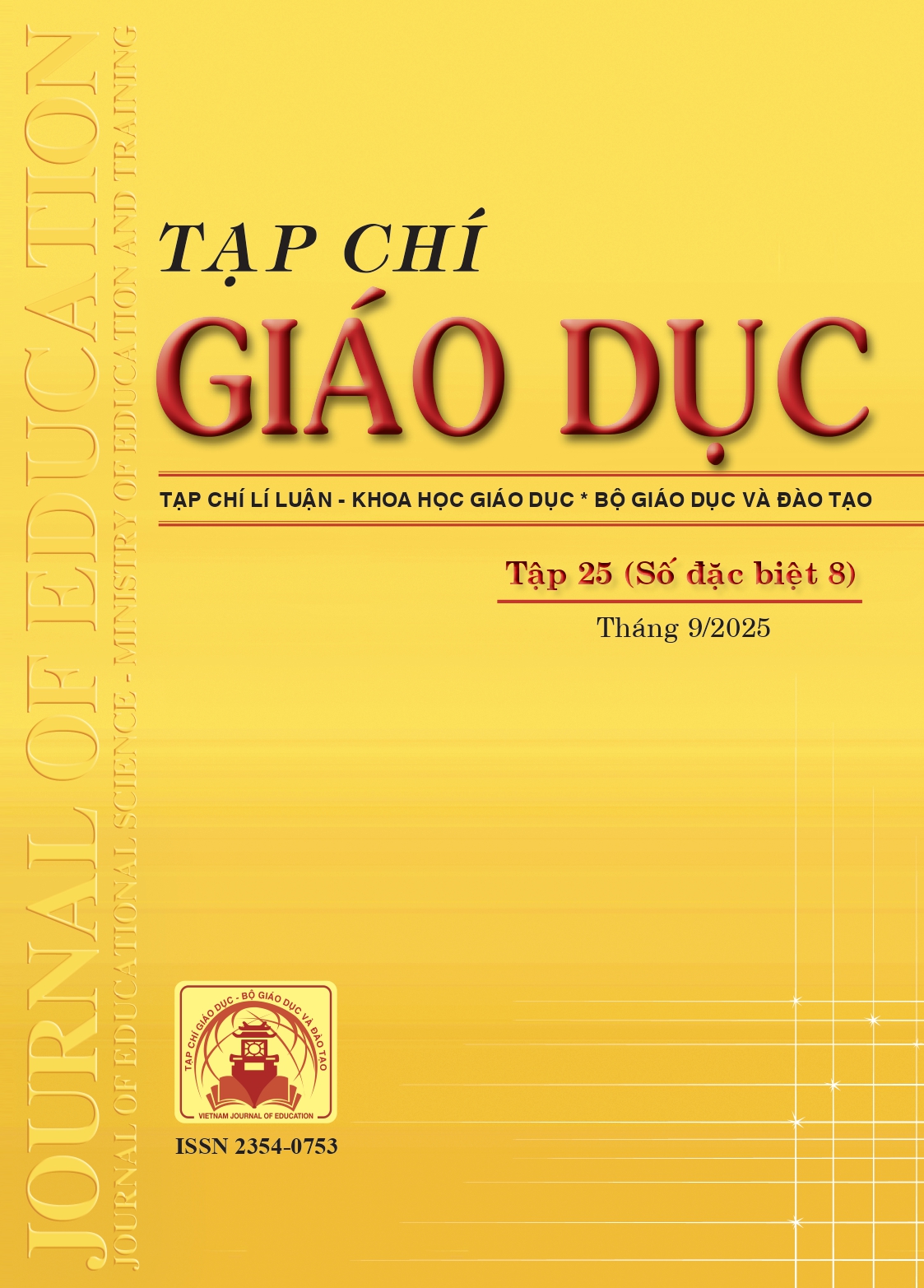Kĩ năng cần thiết của sinh viên kế toán trong thời đại công nghệ số: nhận thức từ các bên liên quan
- Từ khóa:
- Skills
- accounting
- students
- digital technology
Tóm tắt
The digital age has a significant impact on all industries worldwide, including accounting. This study explores the perceptions of stakeholders regarding the essential skills required for accountants in the future. A mixed-method approach was used to collect 433 samples, including accountants, employers, lecturers, and accounting students, to assess the importance of certain skills for accountants. The results show that the priority index is arranged in descending order of 8 skill groups as follows: Digital skills, ethical skills, professional skills, critical thinking, other skills, problem-solving skills, business skills, and communication skills. Additionally, the study also reveals significant statistical differences between the survey groups regarding the importance and priority index of some skills. This research makes an important contribution to understanding the essential skills for the success of an accountant and suggests that accounting educational institutions could implement measures to improve these skills, making the accounting profession more professional in the digital age.
Tài liệu tham khảo
Association of Chartered Certified Accountants (2016). Professional accountants-the future: Drivers of change and future skills. ACCA.
American Institute of CPAs, Chartered Institute of Management Accountants (2018). The changing role and mandate of finance.
Alshbili, I., & Elamer, A. A. (2020). The vocational skills gap in accounting education curricula: Empirical evidence from the UK. International Journal of Management in Education, 14(3), 271-292.
Ballantine, J., Boyce, G., & Stoner, G. (2024). A critical review of AI in accounting education: Threat and opportunity. Critical Perspectives on Accounting, 99, Article 102711. https://doi.org/10.1016/j.cpa.2024.102711
Chartered Accountants Australia and New Zealand (2017). The future of talent: Opportunities unlimited (p. 72). CA ANZ.
CPA Australia. (2019). CPA Australia’s my firm. My future. CPA Australia.
De Villiers, R. (2021). Seven principles to ensure future-ready accounting graduates: A model for future research and practice. Meditari Accountancy Research, 29(6), 1354-1380. https://doi.org/10.1108/MEDAR-04-2020-0812
Duke, C. R. (2002). Learning outcomes: Comparing student perceptions of skill level and importance. Journal of Marketing Education, 24(3), 203-217. https://doi.org/10.1177/0273475302238048
Hassall, T., Joyce, J., Arquero Montano, J. L., & Donoso Anes, J. A. (2003). The vocational skills gap for management accountants: The stakeholders' perspectives. Innovations in Education and Teaching International, 40(1), 78-88. https://doi.org/10.1080/1470329032000042202
Izuagbe, R., Omeluzor, S. U., & Igbaria, K. (2021). Exploring the impact of the Fourth Industrial Revolution (4IR) on skill development in accounting education. Education and Information Technologies, 26, 7713-7732.
Jackson, D., & Meek, S. (2020). Embedding work-integrated learning into accounting education: The state of play and pathways to future implementation. Accounting Education, 30(1), 63-85. https://doi.org/10.1080/09639284.2020.1794917
Phạm Thu Huyền, Đào Thị Nhung, Bùi Thị Kim Nhiên (2018). Đánh giá kĩ năng nghề nghiệp của cựu sinh viên ngành kế toán tại các trường đại học trên địa bàn Hà Nội. Tạp chí Khoa học và Công nghệ, 46, 12-18.
Ngô Thị Thanh Thủy, Nguyễn Thị Thúy, Trần Thị Vân Anh, Hoàng Minh Tâm, Nguyễn Thị Thanh Loan (2020). Nghiên cứu những kĩ năng cần thiết cho sinh viên kế toán - kiểm toán khi ra trường. Tạp chí Sinh viên Nghiên cứu Khoa học, 10, 348-355.
Nguyễn Đình Thọ (2013). Phương pháp nghiên cứu khoa học trong kinh doanh. NXB Lao động xã hội.
Ratmono, D., Cahya, B. T., Isgiyarta, J., & Meiryani, M. (2024). Virtual reality and perceived learning effectiveness in accounting studies: The mediating role of task-technology fit. Cogent Business & Management, 11(1), 2335506.
Reinstein, A., & Bayou, M. E. (1997). Critical thinking in accounting education: Processes, skills and applications. Managerial Auditing Journal, 12(7), 336-342. https://doi.org/10.1108/02686909710180698
Suarta, I. M., Suwintana, I. K., & Sudiadnyani, I. G. A. O. (2022, March). Technology and information system expertise demand for accounting professionals: A requirements analysis of job advertisements. International Conference on Applied Science and Technology on Social Science 2021 (iCAST-SS 2021) (pp. 276-282). Atlantis Press. https://doi.org/10.2991/978-94-6463-500-4_33
Tsiligiris, V., & Bowyer, D. (2021). Exploring the impact of 4IR on skills and personal qualities for future accountants: A proposed conceptual framework for university accounting education. Accounting Education, 30(6), 621-649.
Watty, K., McKay, J., & Ngo, L. (2016). Innovators or inhibitors? Accounting faculty resistance to new educational technologies in higher education. Journal of Accounting Education, 36(1), 1-15. https://doi.org/10.1016/j.jaccedu.2016.01.001
Vysotskaya, A., & Prokofieva, M. (2024). Management accounting and data analytics: Technology acceptance from the educational perspective. Accounting Education, 34(3), 410-433. https://doi.org/10.1080/09639284.2024.2338140
Đã Xuất bản
Cách trích dẫn
Số
Chuyên mục
Giấy phép

Tác phẩm này được cấp phép theo Ghi nhận tác giả của Creative Commons Giấy phép quốc tế 4.0 .












